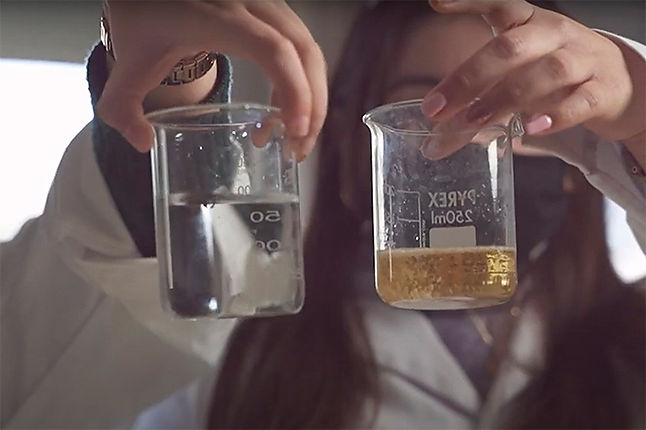The III Day of the Science of Roses, in digital format
Scheduled for March last year, this III Conference on the Science of Roses had to be postponed due to the declaration of the state of alarm by the Covid-19
55 1st and 2nd year high school students from the Cap Norfeu, Illa de Rodes and Center Escolar Empordà high schools have participated in the recording of an informative video where they perform and explain a total of 15 scientific experiments, which will be viewed from today by 6th grade students in the population. This gives continuity to the celebration of the Day of Science of Roses, which this year reaches its third edition in the programming of the Environmental Education Plan and which has a very good evaluation each year by students and teachers.
To achieve this, last November the Department of Education of the City Council commissioned the recording of the 5 experiments that each center presents, each of them conducted by between 3 and 5 students. The duration of each experiment is about 10 minutes, and this year we present work on reflection and refraction, types of light energy, spectacular chemical reactions, water purification, observation of plant pigments, electromagnets, cells and DNA. , detection of substances in food, fluids that modify their viscosity, solutions or creation of acid rainwater. In previous editions, these works were presented in a day during which experimental tables were installed in the Plaza del Teatre de Roses, which primary school students visited throughout the morning.
Now, once the recording and editing of the video has been completed, it is made available to sixth-graders in all schools in Roses together with a descriptive dossier of each experiment, so that students can work on its contents in the the classroom. The general public will also be able to access it, starting tomorrow Friday, through the City Council's website and the Department of Education's Youtube channel .
The adaptation of the format thus allows to continue the activity with a fun and very understandable format, where the fact that it is the same upper cycle students who disseminate scientific knowledge to primary students continues to prevail, showing them the funniest and most amazing side of the world of experimentation.

